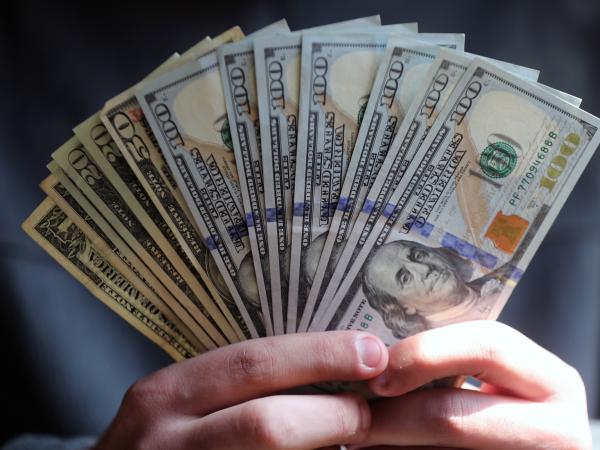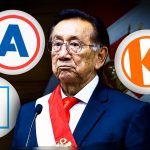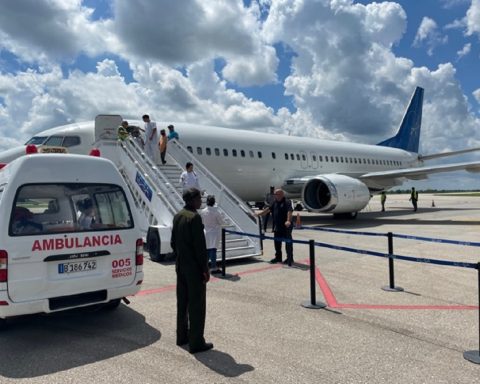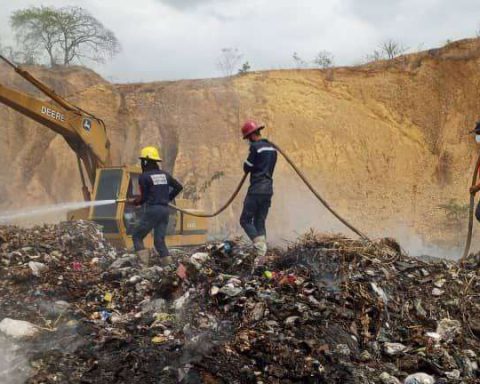The persistence of high oil prices that improve the outlook for Colombia’s current account, the recomposition of the portfolios that have moved away from Russia and are approaching Latin Americabut even the results of recent political polls are generating further declines in the dollar, which is at the lowest level in nine months.
(The dollar started the week lower and very close to $3,700).
This Monday the currency in the banking market registered a strong downward trend, to the point that it managed to fall to $3,690, after opening the session at $3,740, which was also the maximum of the day.
In the end, the currency closed at $3,704.50 and had an average of $3,706.72.
The volume traded during the day of the interbank dollar was US$1,393.50 million and the 90-day volatility is 12.36%.
For its part, in the last year the devaluation of the peso reaches 0.77%, while since the beginning of 2021 there has been a revaluation of the peso of 6.89%.
(The effect of elections on markets).
The Representative Market Rate for this Tuesday is $3,706.95, which represents a drop of $67.84 compared to this Monday, which was $3,774.79.
Analysts said that another factor that has contributed to a greater revaluation of the peso is the inflow of capital as a result of the public offers of acquisition (OPA) on Grupo Sura and Nutresa.
EXPENSIVE OIL
For Diego Gómez, foreign exchange analyst at Corficolombiana, “The main external reason for the fall in the price of the dollar is the conflict in Ukraine and what this generates in the increase in energy prices. Since February 24, the benchmark Brent crude has been above US$100 and as long as there are such high prices for oil and commodities (basic goods) it generates revaluation pressures on the peso” and in this sense, countries in the region such as Brazil, Chile and Peru export this type of product, which puts pressure on the revaluation of these currencies.
However, it clarifies that these good prices are not from now, but from the second half of 2021 and “it seems that investors are ‘writing off’ the region after the decrease in electoral uncertainty”.
In addition, it reveals that after the elections for Congress in Colombia, the indicators that measure risk pressure have dropped by 22 basis points.
But he warns that in the middle of the year it is not ruled out “a volatility because there may be a devaluation as a result of the presidential elections in Colombia.”
(Dollar in Colombia also suffered the effect of the attack on Ukraine).
He pointed out that capital is entering due to the economic sanctions against Russia from NATO and the United States and this is indicated by the rebalancing in the GBI-EM Global Diversified index of JP Morgan, which invests in sovereign debt in local currency. “Well, with the exit of Russia from the index, in Colombia we expect a purchase flow of US$1,475 million, which would be equivalent to $5.6 billion.”
In any case, the analyst assures that despite the polls for the electoral contest, we will have to wait for more uncertainty derived from the process.
VALUED FIXED INCOME
According to Ana Vera, chief economist at Inon Capitalthe fixed income market, especially those in TES (public debt) has been appreciating quite a bit in recent months.
“In addition, as the polls have shown that there is the opportunity for a candidate other than Gustavo Petro to win, this is causing some to take profits with the high rates that public debt bonds had and that generates inflows. of important capital and that is having repercussions on the exchange rate”, points out.
BRIEFCASE


















